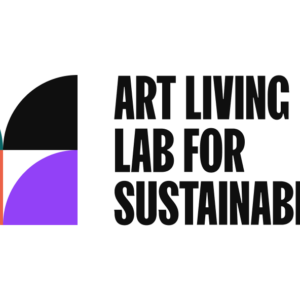Art Living Lab for Sustainability
Concomitentes, a non-profit since 2018, fosters socially engaged art through citizen-commissioned projects. Developed by François Hers, this approach has impacted over 500 European projects in 25 years, accompanied by public activities exploring art, participation, and sustainability.

Overview of the project

Art Living Lab for Sustainability seeks to promote stable alliance/constituencies between actors of European territories to facilitate innovation ecosystems to get Nature-Based Artistic Solutions. Faced with complex sustainability challenges, only participatory and transversal responses can be given. Contemporary art is more than a work of art, there are also protocols, devices and soft methodologies that can be replicated in other places. In fact, few places are as disruptive as art.
The objective of this project is to promote transversal cultures of participatory that respond to environmental challenges on three types of natural commons: land, water and clay. It will activate three participatory processes through the Living Lab experience, where artists should attend to citizen demands resulting from a mediation process. In addition to the practice itself, it will be analysed the impacts and limits of participatory artistic processes. In addition to 3 participatory processes and subsequent 3 works of art, a tool kit will be generated to expand the scope of the project, as well as the documentation of the process. The objective is to demonstrate from practice how art and culture can intervene in sustainability.
The urgency of the climate crisis forces us to experiment with new governance models and generate relational spaces for co-working and decision-making and collective listening that help sustain the planet. Art Living Lab for Sustainability seeks to increase the skills of the cultural sector in the generation of participatory spaces and, above all, to increase awareness of the know-how that rural communities and the cultural sector have in managing ecosystems. The resilience of the territories involves strengthening local communities and networks of mutual supp
To demonstrate the capacity of art as a catalyst for cultural change that favours citizen agency through participatory methodologies that lead to collaborations with artists that reflect a context or issue around the management of the natural commons.
Ongoing research
February 2023 - January 2025
European Comission - Creative Europe
Daniel and Nina Carasso Foundation
organisation
Concomitentes is a non-profit association founded in June 2018 to promote the creation of artworks that engage with their social context. Concomitentes invites civil society groups to become the citizen-commissioners or “comitentes” of an artwork, and then accompanies them through the ensuing process of negotiation.
The underlying methodology was developed by the artist François Hers in 1990 and has had an enormous social and cultural impact wherever it has been implemented. Over the past 25 years, it has given rise to more than 500 projects in various European countries.
At the same time, Concomitentes organises public activities to deepen the art – participation – sustainability axes.
See how we work in this 2 min. video: https://youtu.be/-iaJlnz8TNY?si=NS2nW1B00mliR5lj
Partners:
Concomitentes (Spain) is a non-profit association founded in June 2018 to promote the creation of artworks that engage with their social context. Concomitentes invites civil society groups to become the citizen-commissioners or “comitentes” of an artwork, and then accompanies them through the ensuing process of negotiation. Founded in 2018, the association develops citizen participation projects in Barcelona (Catalonia), Betanzos (Galicia), Santa Cruz de Tenerife (Canary Islands), Madrid (Community of Madrid), León (Castilla y León) and Llanos (Cantabria). Since it began its journey, in 2018, Concomitentes has worked on its public visibility, participating in public programs about participatory governance, other ways of making ‘society’ and the role of culture and art.
De Nieuwe opdrachtgevers (DNO) / les Nouveaux commanditaires (Belgium) is a non-profit organisation and it establish new relationships between art, artists and public. In order to give a voice to the public and enable citizens to play a role as commissioner of an artwork, their actions take place on the art scene without walls. In these situations, the citizen becomes an equal to the artist and acquires the authority to publicly express a need to create as well as to assess what is produced in the name of art. In 2000, within the framework of Brussels Cultural Capital of Europe, the King Baudouin Foundation co-financed the 26 first projects of de DNO. From 2002 onwards DNO realised another 44 artworks, without this Foundation, but through various funding. Financed by private and public subventions, the artwork becomes the property of a collective and its value is no longer a market value, but the value of the usage this collectivity makes of it and the symbolic importance conferred upon it.
La Société des Nouveaux commanditaires en arts & sciences (SNC) (France) was created in 2020 to provide a platform for the French mediators working under the aegis of the Nouveaux commanditaires protocol and to federate their actions on a national level and to contribute to the structurization at a European level. This new entity brings together all those national associations that have been working in the Nouveaux Commanditaires network for more than 30 years. The aims of the organisation are to promote and enhance the value of the New Patrons methodology, notably with the transfer of, know-how and providing training in the profession of mediator-producer, promote the networking of mediators-producers, amplify the European network of producer mediators and initiate and deliver research programmes in collaboration with education and scientific establishments.
Interuniversity Centre for Research on Atlantic Landscapes and Cultures (CISPAC) – University of Santiago de Compostela (USC) (Spain), CISPAC´s mission is to carry out research on landscapes from a transdisciplinary perspective, in a quest to provide epistemic answers to contemporary challenges. Its aim is to produce innovative ways of understanding and working with landscape, heritage and production, based on identity, participation and sustainability.
Associated partners:
Monte Vecinal de Couso (MVC), the Communal Land of Couso (Spain) searches for new ways of managing the forest, transforming the mountain into a resource of greater environmental value that is more respectful of native tree species. The traditional logging of Pines or Eucalyptus adds new species with higher added value, nobler, that take better care of the landscape value of the forest and offers new economic horizons with the planting of chestnut trees, cherry trees and nuts. They pay special attention to schoolchildren by programming educational days in the mountains and are pioneers in alternative organic production: raspberry, blueberry, currant, chestnut, or “shiitake” mushrooms. They have been recognized as an example of good management by UN ICCA.
Flemish Land Society / Vlaamse Landmaatschappij (VLM) (Belgium) is limited liability company under public law which it is committed to developing resilient open spaces that are brimming with life. They are enhancing the countryside and open spaces to enable them to better endure urbanisation, fragmentation and climate change. They are collaborating on policy and investing in soil and water quality, biodiversity and infrastructure. They are striving for beautiful, healthy urban and rural environments that are a pleasure to live and work in, and where there is plenty of space for relaxation.
Daniel & Nina Carasso Foundation (FDNC) (Spain and France) was created in 2010, the Daniel and Nina Carasso Foundation is a foundation affiliated with the Fondation de France. The Foundation materializes its commitment in two major areas: Sustainable Food, for universal access to healthy food, respect for people and ecosystems; and Citizen Art, with which work is done to develop a critical spirit and reinforce social cohesion.
Other partners:
Haut-Jura Regional Park (HJRP) (France) is an important player as regards the future of water resources in France. For many years, it has been addressing this issue through actions contributing to the improvement and maintenance of the quality of the hydrographic network on the one hand: restoration of watercourses and ecological continuity, flood prevention, and on the other hand, anticipating the environmental and social challenges of sharing the resource in the diversity of its uses. Located in the Jura, a mid-mountain territory marked by heavy forestation and a topography of ridges, coombes and valleys but also irrigated by a large network of rivers, natural lakes and wetlands, water represents a major environmental challenge for this region in view of the climate changes underway.

